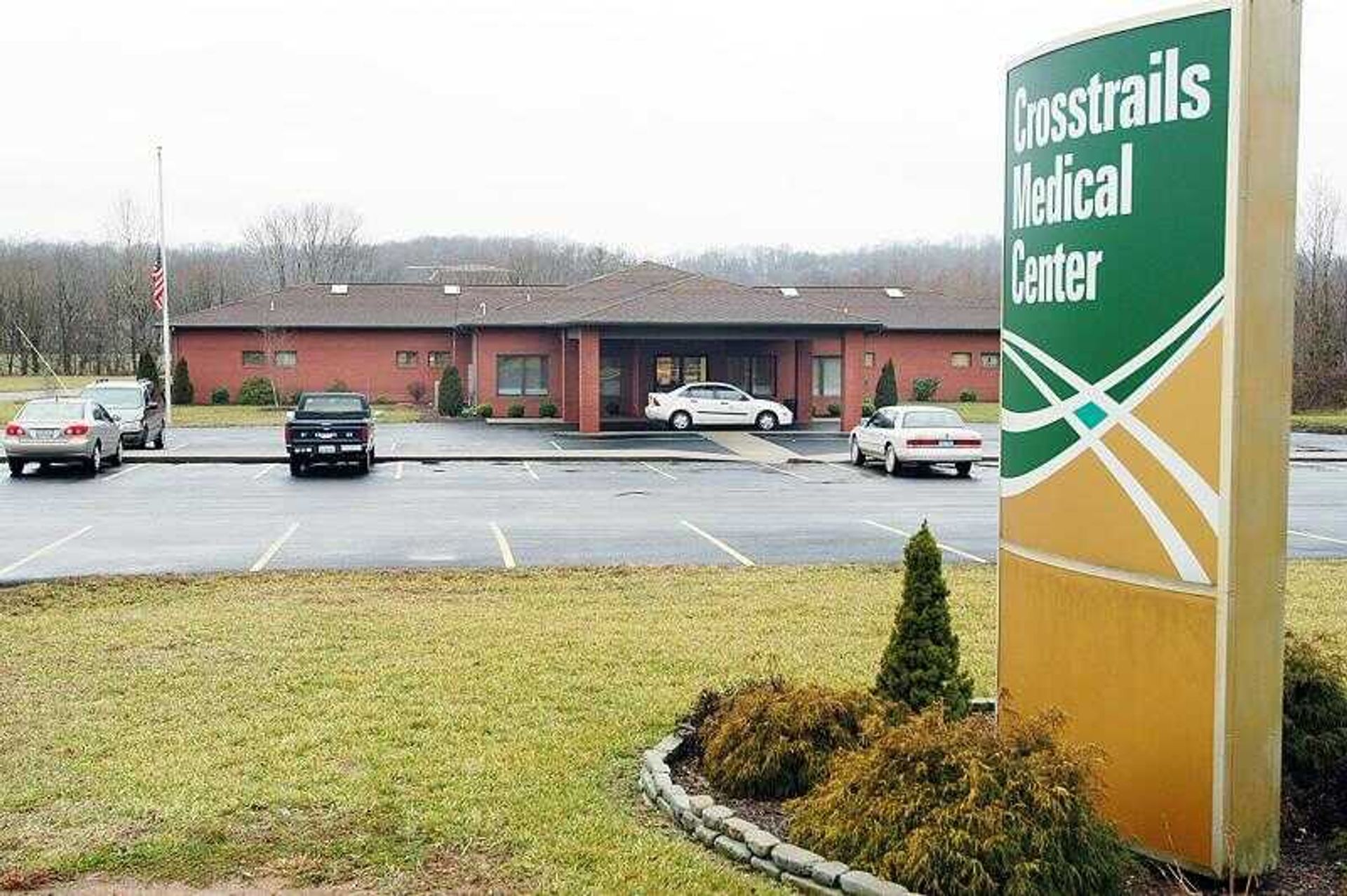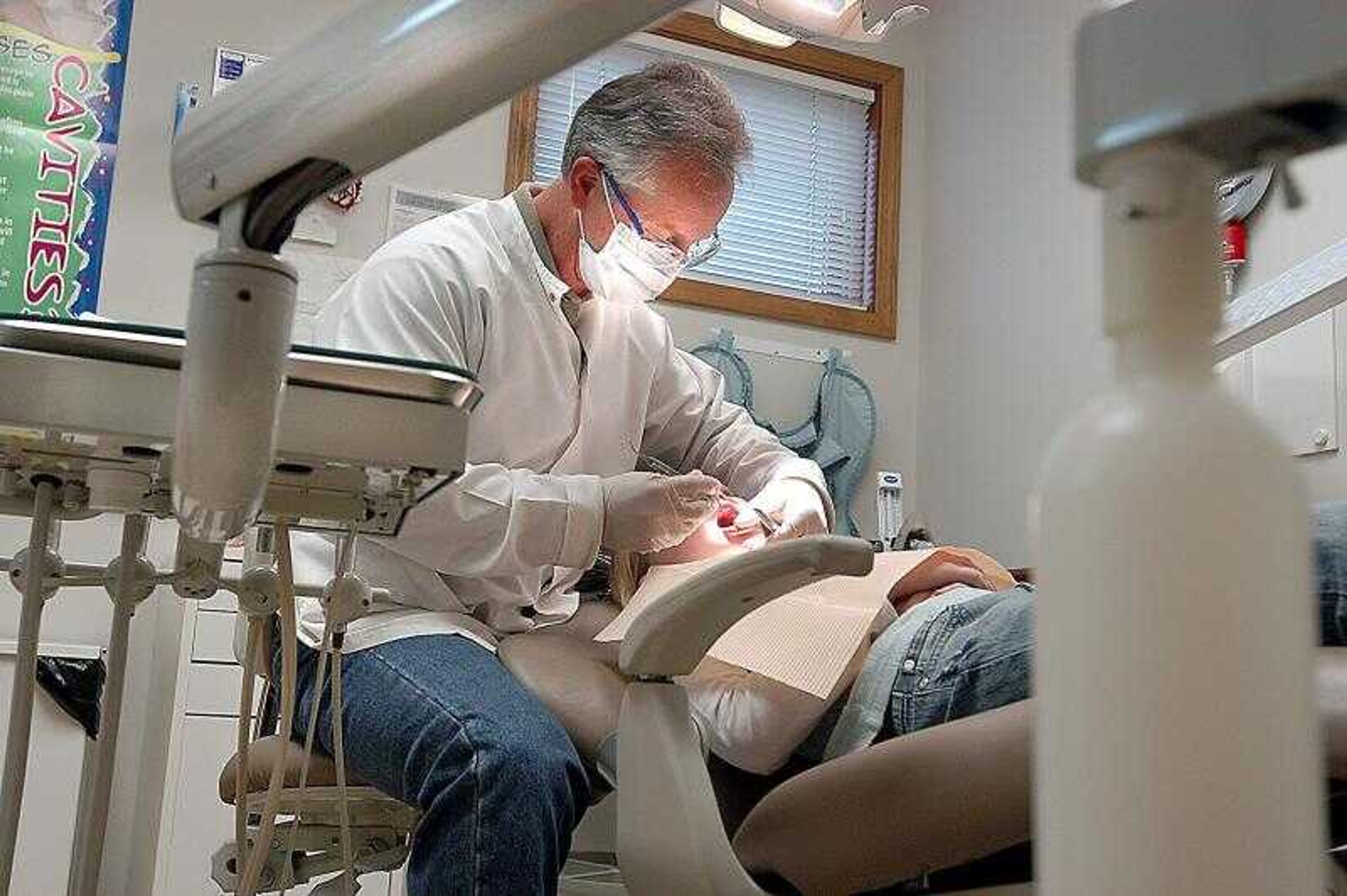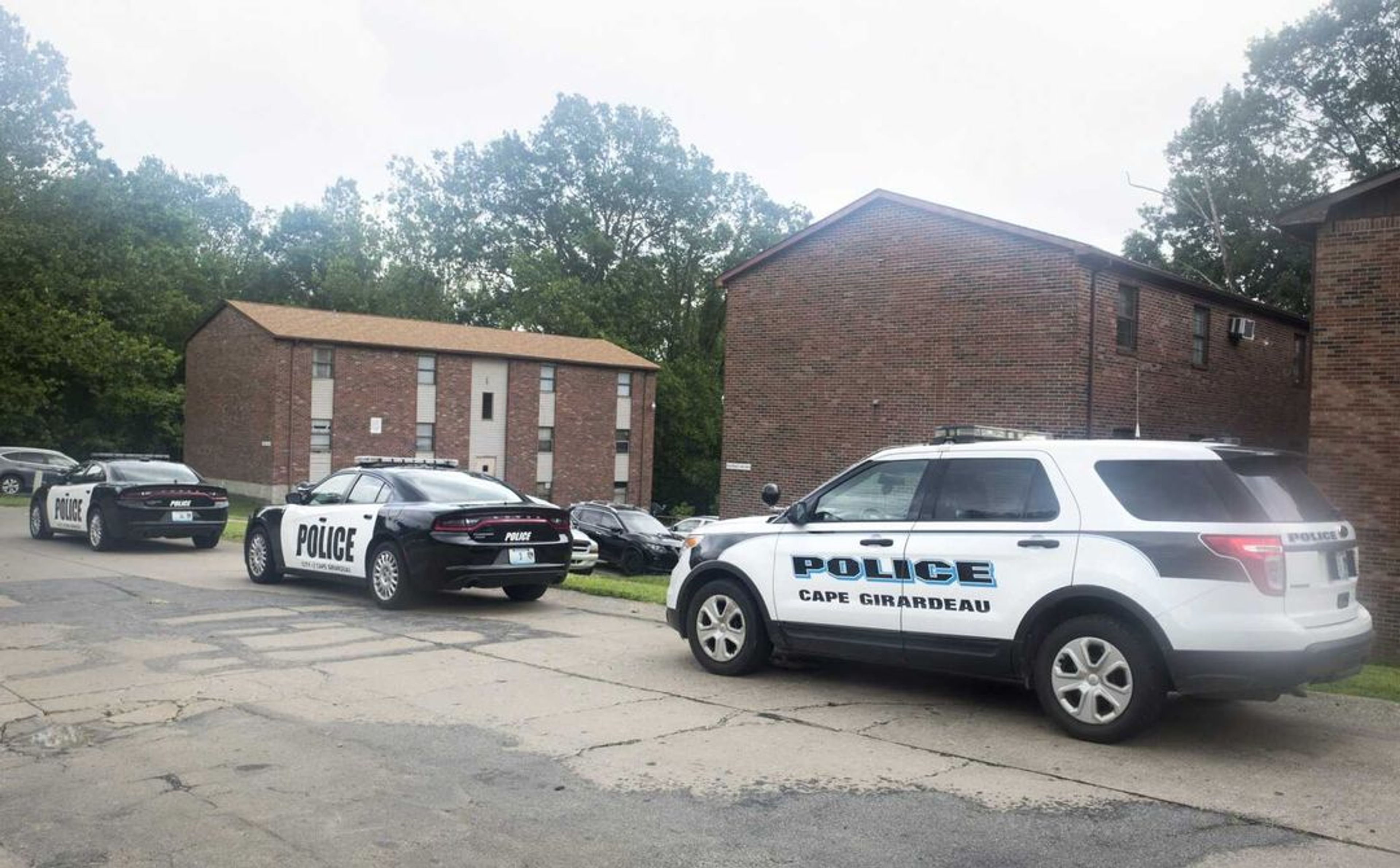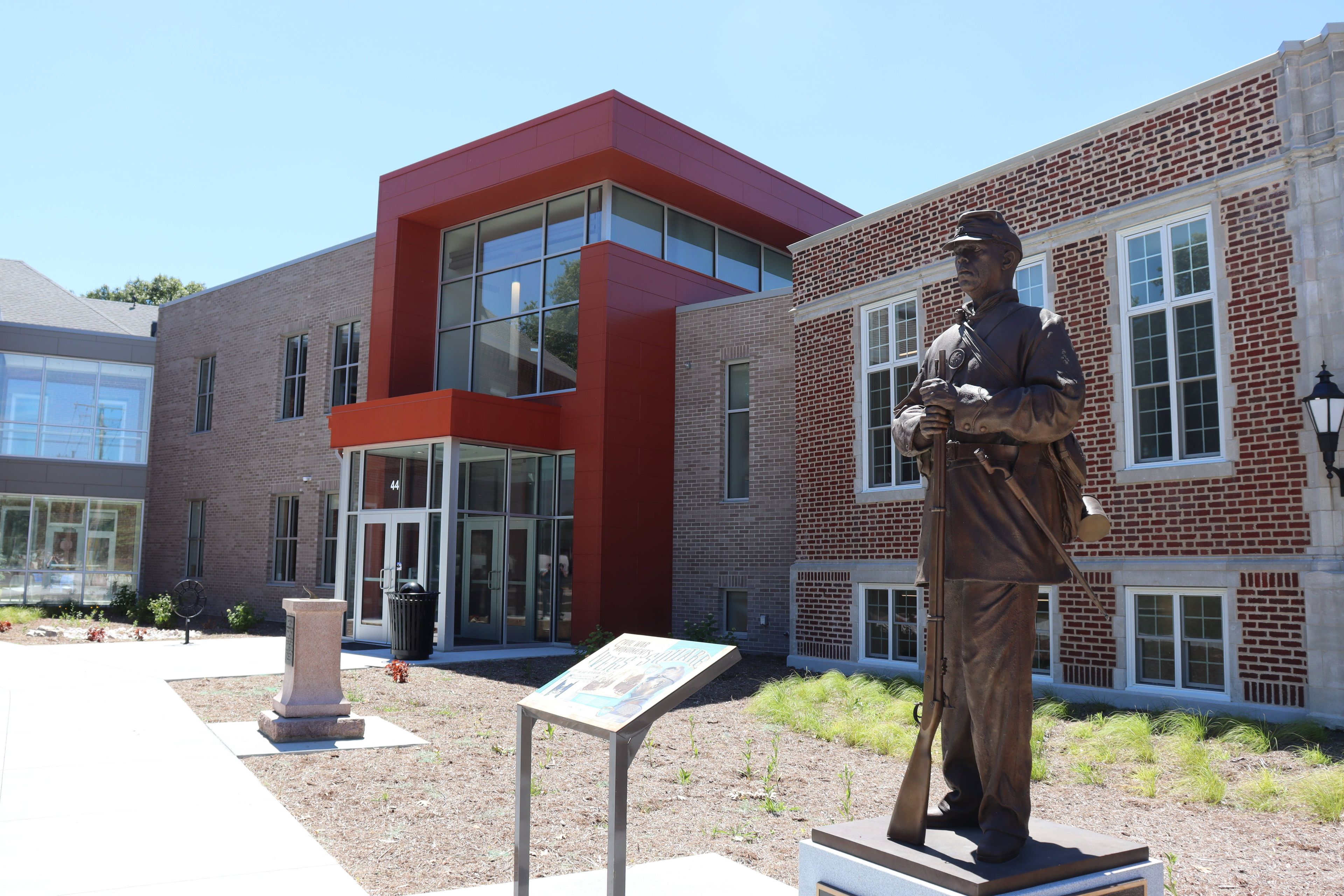Rural areas short on dentists
MARBLE HILL, Mo. -- Two forces kept Cheryl Mouser of Marble Hill from undergoing a double root canal before Christmas. The first: The 21-year-old Medicaid patient lives in a rural area with little dental care. The second: For the last two years Medicaid in Missouri has not covered dental care for most adult patients...
MARBLE HILL, Mo. -- Two forces kept Cheryl Mouser of Marble Hill from undergoing a double root canal before Christmas. The first: The 21-year-old Medicaid patient lives in a rural area with little dental care. The second: For the last two years Medicaid in Missouri has not covered dental care for most adult patients.
Mouser's grandmother and caretaker, Donna Burkman, 63, was faced with the choice of either paying $475 -- about 80 percent of her monthly income -- to have the root canals done or continuing to buy pain pills for Mouser, who is mildly retarded. Burkman reluctantly chose the second option.
"This girl cannot live on pain medicine the rest of her life," Burkman said. "It's either try to find the money or sit there and watch Cheryl kill herself with pain pills and cry herself sick. She cries a lot because there are nights when it hurts too much for her even to eat dinner."
Mouser's plight is extreme but not uncommon in rural America. Lack of dentists and lack of education about dental care regularly lead to prolonged tooth decay, which in turn leads to painful, costly and avoidable procedures.
"It all comes down to the money issue for a lot of people. Money is a big obstacle that prevents people from going to a dentist at a time when they need to," said Joe Cravens, a registered dental hygienist at the Cross Trails facility in Marble Hill.

And waiting usually makes things worse.
"The main reason adults come in is for dentures or extractions or they're in a lot of pain. They just wait to the point where it's too bad," Cravens said.
When people in rural areas do decide to go to a dentist, there aren't many options. In Bollinger County, there are more than 6,000 people for each general dentist practicing, according to a study by the Missouri Department of Health and Senior Services.
In Missouri, people living in rural counties make up 40 percent of the population, yet dentists in those counties account for only 28 percent of the state's total number. Five Missouri counties don't have a practicing dentist.
Seen as optional
Unlike other types of care, dental care often is seen as something optional.
"We may be in a crisis in terms of access to health-care services, but people can still get those services in the emergency room," said Bobbi Morris, director of Southeast Missouri State University's SHOW Mobile, a mobile health unit to provide health and dental care to patients in four rural Bootheel counties. "It may not be the most efficient or effective way, but emergency rooms cannot turn patients away. The same is not true for dental care."
For a patient with a painful toothache, "the emergency department can give them a prescription for antibiotics or analgesics, but that's just a big Band-Aid on a gushing wound. Then the toothache returns and they're back in the emergency room."
Cross Trails, where Cravens sees patients four days a week, would like to be able to do more. The dental clinic recently received a $545,590 grant from the Missouri Foundation for Health to increase the size of its facility and hire a full-time dentist among other improvements.
Currently the only dentist at the clinic is Dr. William Chouinard of Sikeston, who spends one day per week there. Chouinard often must schedule procedures weeks and months in advance because of a long waiting list. Cross Trails has made contacts at a state dental school and said it will offer a competitive salary.
But the clinic may still have trouble luring a dentist to the rural location.
"Dentists are the hardest thing to acquire in the rural areas," said Cynthia Hayes, the program officer at the Missouri Foundation for Health. "We see a lot of times clinics have a salary for a dentist, and then three months or four months or even six months later they call back and they still haven't filled the position."
That is the case with the SHOW Mobile, which the university unveiled in July. Despite having money put aside to hire a dentist, the program has been unable to secure one.
"That's the thing, you can have the dollars and we have them, but there are not people to fill the position," Morris said of the mobile unit, which has a chair and sophisticated equipment, but no dentist.
SEMO Health Network, which operates in six Bootheel counties, is having similar difficulty hiring and retaining a dentist, Morris said.
The local vacancies are part of a larger trend. Nationwide, 20 percent of all dentists will retire in the next 10 years. The pool of dental school graduates is not enough, according to the American Dental Association, to replace the retirees.
Some believe the best way to help rural communities is through education.
Cravens is hoping to do his part to fight the problem from the ground up with early education and preventive treatment. He spends two months each year traveling around Southeast Missouri doing check-ups at rural schools. He said there he encounters difficulty from parents as much as children when he visits the schools. On average, only about 40 percent of parents give permission for Cravens to clean their children's teeth.
"We have parents who come in and say, 'My teeth fell out when I was 20, my parents' teeth fell out when they were 20 and so my child's teeth are going to fall out and there's nothing for you to do about it.' Well, no, not necessarily," Cravens said.
Cravens does cleaning, sealant and fluoride treatment on children and says he has seen some progress during his four years of work.
"It used to be when you went in, it seemed like every third kid had rot or decay," Cravens said. "Now it's not so bad."
tgreaney@semissourian.com
335-6611, extension 24
Connect with the Southeast Missourian Newsroom:
For corrections to this story or other insights for the editor, click here. To submit a letter to the editor, click here. To learn about the Southeast Missourian’s AI Policy, click here.











